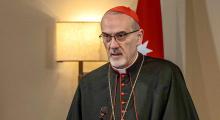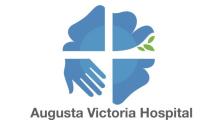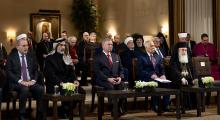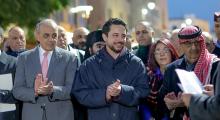Issued by the Catholic Center for Studies and Media - Jordan. Editor-in-chief Fr. Rif'at Bader - موقع أبونا abouna.org
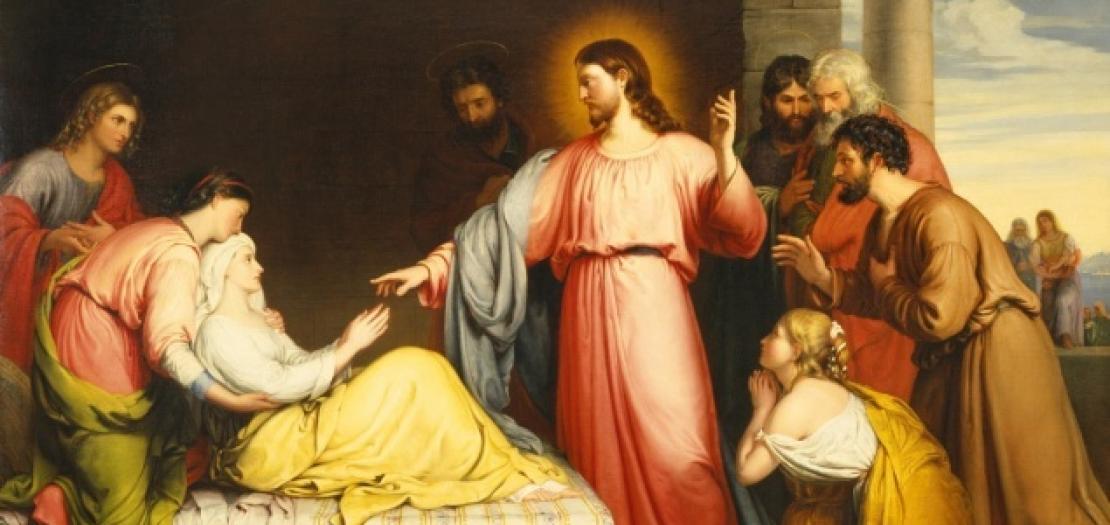
Following is the meditation of Latin Patriarch of Jerusalem His Beatitude Pierbattista Pizzaballa for the 5th Sunday in Ordinary Time, Year B, February 7, 2021:
“The time is fulfilled, and the Kingdom of God is at hand” (Mk 1:14): with these solemn words Jesus began his public ministry in Galilee. The words we find in today’s Gospel, instead, are all much more straightforward and ordinary: home, mother-in-law, fever, take by the hand, rise, serve (Mk 1:29-31).
There is a disproportion between the solemn opening words of the Gospel and today’s episode, but in this imbalance lies the entire new story of the Gospel. There is the “is at hand” of the Kingdom, about which we read two Sundays ago. Because the Kingdom is fulfilled only in the ordinariness of encounters and homes, relationships, and life experiences, in the simpler things of life.
The event of today is part of the so-called “Capernaum day” that the evangelist describes as a typical day of Jesus, to show us as Jesus moves within ordinary life. Having left the synagogue, where he taught with authority and freed a demoniac silencing the unclean spirit that possessed him, now Jesus goes to the home of one of His new friends.
Home is the first critical element of today’s Gospel: it’s here in a house, in a “profane” place, unofficial, that the first community comes alive, the first church. Jesus returns here often, to have a private and ordinary life that is not less important than the more visible and public. The synagogue at that time was the institutional place of meeting for the community. It is that very institutional context, led by the leaders of the people and the scribes, that shows them unable to receive the new salvation that Jesus brings (in Mk 3:6, we see that it’s in the synagogue the very first violent rejection against Him develops). The home instead appears to be the place where salvation happens, where Jesus reveals the style of the Kingdom. In the home, ordinary things are important, and it’s in that context that one can encounter it.
And in the case of Simon, as in many homes, it happens that sickness has entered: even if an ordinary sickness, a simple fever, but still a symptom of that weakness that all humanity shares. Jesus naturally draws near (Mk 1:31): a young Teacher is next to an older woman, and a relationship happens full of humanity and affection. What can one do, to a sick person, but take his or her hand, as a sign of friendship and sympathy? And Jesus also does this, because this is the style of the Kingdom that Jesus announced at the beginning of His ministry.
Here is not the only case when Jesus takes someone by the hand: He will do it other times, and every time this gesture will be significantly linked to healing and, even more, to give back life. Thus, it will be for the daughter of Jairus (Mk 5:41) or for the epileptic boy who, after the exorcism, “is as dead” But Jesus took him by the hand and made him rise (Mk 9:26-27).
There is a sequence, a link that occurs between these two verbs, take by the hand and rise up, and it is a link that generates life, that conquers death, that resurrects. The hand of Jesus, when it takes ours, lifts us, gives life back to us because to live we need this simple gesture of tenderness and nearness.
But there is a third important verb: Peter’s mother-in-law, once healed, begins to “serve” (Mk 1:31).
We are not healed merely to be well, but so that the life, which has been freely given back to us, is available to others. And this implies that the healing – the resurrection – is “complete” only if these two verbs are together, if you get up to serve: only thus will it indeed be Easter.
Precisely in a Paschal context, indeed, will Jesus speak of Himself as a servant, when He will speak of not coming to be served, but to serve and to give His life as a ransom for many (Mk 10:45).
Today’s passage does not stop at the house of Simon: the salvation that happened in that house also moves outside, to another important place of encounter that is the city gate (Mk 1:33). It is a border place, a place where everyone meets. Each one comes there with his burden of suffering and difficulty, and we can think that the same hand that was placed on Peter’s mother-in-law is also placed on each one, with the same tenderness.
But the passage concluded with an unexpected event: Jesus, in the night, retires in solitude, to take care of His relationship with the Father, with His source of life.
And to the disciples who are seeking Him anxiously, preoccupied with not ignoring the expectations of the people (all are looking for you! Mk 1:37). Jesus opens still greater horizons, as those opened for them at the time of the call; and He proposes to them an “elsewhere” (Mk 1:38). Whoever wants to follow Him, whoever seeks Him, knows where to find Him. He will always find Him “somewhere else” because He will have already left the place that will have benefitted, without being imprisoned there, obedient to a call asking to go “elsewhere” (Mk 1:38), to another place.
Within this “elsewhere” there is a possibility of salvation, of healing, and a hand placed on all.
+Pierbattista



